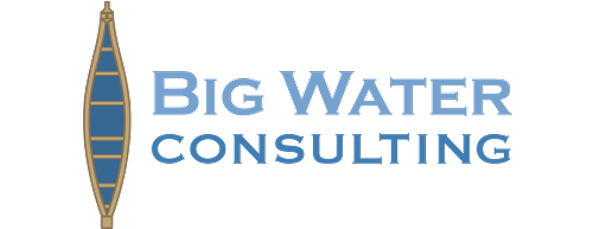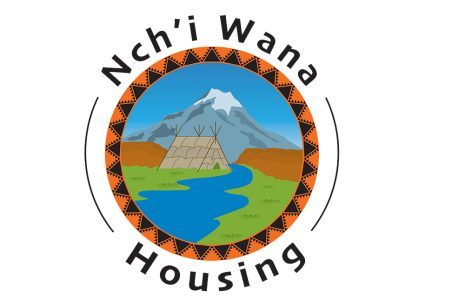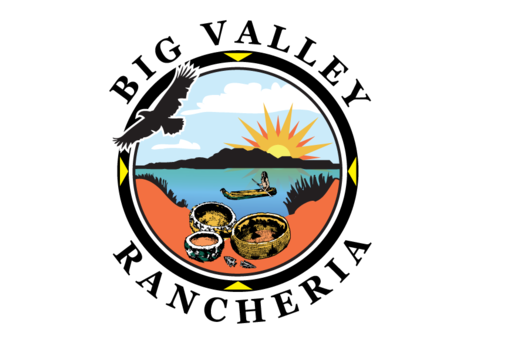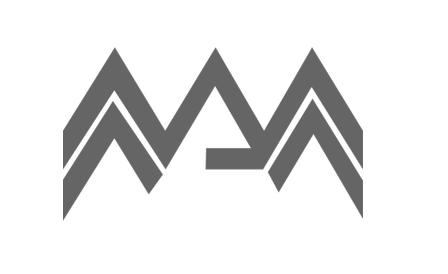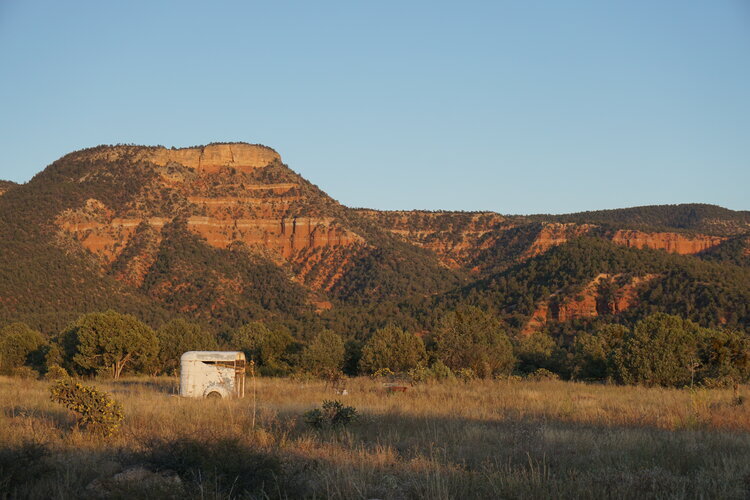The Dry Creek Community Needs Assessment and GIS Mapping Project has been set in motion to assist the Dry Creek Band of Pomo Indians in collecting relevant, accurate, and comprehensive data about the characteristics, demographic trends, and other needs of both the community and physical environment of the Band.
CDFI New Markets Tax Credit Native Initiative
Please join us for an upcoming New Markets Tax Credit Native Initiative Best Practices Workshop! Workshops will focus on research findings and lessons learned regarding increasing investment in NMTC Native Areas (Federal Indian Reservations, Off-Reservation Trust Lands, Hawaiian Home Lands, and Alaska Native Village Statistical Areas). These best practices and recommendations are the culmination of the findings from and information contained in the NMTC Native Initiative Market Research Report, Case Study Report, and Self-Assessment Guide for Native Organizations.
Eastern Shoshone Children's Lodge
The Eastern Shoshone Children's Lodge is a new tribally owned development on the Wind River Reservation that serves as a temporary home for children placed into protective custody. The focus of the Economic Feasibility Assessment will be to provide insights and recommendations to support the lodge’s programmatic operations.
Warm Springs Housing Study and Needs Assessment
The Warm Springs Housing Study and Needs Assessment will provide the background necessary to develop a comprehensive housing plan that meets the needs of current and future community members. The household survey seeks to gather accurate information about the residents and households of the Warm Springs Reservation which will ensure that CTWS’s divisions and programs have up-to-date information to guide decision making while also helping the tribe build tribal data collection capacity.
Tulalip Tribes Community Needs Assessment
The Tulalip Tribes Community Needs Assessment has been set in motion to assist the Tulalip Tribes in collecting relevant, accurate, and comprehensive data about the characteristics, demographic trends, and other needs of the communities of the Tulalip Tribes. The project presents an exciting opportunity to shape housing, health, education, and economic development strategies that meet the collective needs of Tulalip community members.
Indigenous Economic Development with the Urban Institute, NAIHC, and EDA
We are honored to be partnering with the Urban Institute and the National American Indian Housing Council to coordinate Indigenous Economic Development through a community of practice funded by the U.S. Economic Development Administration (EDA). This initiative is designed to convene current and potential EDA tribal grantees to build capacity for project planning and implementation via training and technical assistance for indigenous communities, and to facilitate expanded access to EDA’s economic development funding opportunities for tribes.
"Sustained progress across Indigenous communities has commonly resulted from sharing experience, knowledge and successful models and strategies,” said Kevin Klingbeil, managing director of Big Water Consulting. “Big Water looks forward to facilitating this critical knowledge sharing process at a time when Tribes and Native communities are increasing their planning capacity, capitalizing on new opportunities, responding to unforeseen challenges, and incorporating new sources of funding and technical assistance.”
Nisqually Indian Tribal Needs Assessment
The Nisqually Indian Tribe is working with Big Water Consulting to conduct a Tribal Needs Assessment of households living on the reservation. The Nisqually Tribal Needs Assessment Survey aims to provide a better understanding of how Nisqually tribal members prioritize treaty rights issues and develop a better understanding of the Tribe's current circumstances. The survey will determine current housing conditions, which tribal services are known to the community, which programs are used by households, and how connected they are to community services and activities such as fishing, hunting, and gathering. The Needs Assessment will also provide an opportunity to better understand how the Nisqually tribe can communicate with the community and how tribal members feel about long-term vs. short-term investment in tribal resources.
Nch'i Wana Community Needs Assessment
Nch’i Wana Housing is working with Big Water Consulting to conduct a Community Needs Assessment of people living along the Columbia River at treaty and in-lieu fishing sites and adjacent communities. The Community Needs Assessment will collect actionable data that Nch’i Wana Housing and its partners providing services to tribal members and residents of these sites can use to plan for future housing and community development projects and to strengthen their programs and services.
Big Valley Rancheria Community Needs Assessment
Lake County, California
Big Valley Rancheria is home to the Big Valley Band of Pomo Indians, descendents of the Xa-Ben-Na-Po Band of Pomo Indians that have inhabited the Clear Lake area of present-day California for thousands of years. The Big Vallery Rancheria Community Needs Assessment seeks to gather data on the housing and other programming needs of Big Valley residents and Tribal members. The needs assessment will also inform renovations to rental housing being conducted by Sustainable Native Communities Design Lab at MASS Design, a Native-owned architecture firm.
Native Action Network
Seattle, Washington
Native Action Network is conducting the Native Women’s Leadership survey to collect qualitative and quantitative information from Native women throughout Washington state interested in all forms of leadership. These include all levels of government, business, nonprofits, activism, and community leadership. Native Action Network will use this information to strengthen and develop its programs supporting Native women’s leadership, to identify opportunities and barriers, to facilitate mentorship and partnership opportunities, and to build a sisterhood of Native woman leaders in the state of Washington.
Fond du Lac Community Needs Assessment
White Earth Housing Needs Assessment
The White Earth Housing Needs Assessment is being conducted to support the White Earth Nation in its efforts to implement a Housing Needs Study. For this project, the White Earth Housing Authority will conduct a survey of residents throughout the study area as well as focus groups, interviews and community meetings to help determine the availability of and need for housing on the White Earth Reservation.
Flathead Indian Reservation Housing Needs Assessment
The Salish & Kootenai Housing Authority is working with Big Water Consulting to convene a regional coalition of governments and non-profit organizations to address the housing crisis facing the Flathead Indian Reservation. The Housing Needs Assessment will collect actionable data that communities can use to plan for future housing and community development projects.
Muckleshoot Community Needs Assessment
Auburn, Washington
Muckleshoot Indian Tribe is composed of descendants of the Duwamish and Upper Puyallup peoples of Central Puget Sound. The Muckleshoot Community Needs Assessment seeks to gather data on the housing and other programming needs of Muckleshoot Reservation residents and Tribal members. The needs assessment will also inform a permanent supportive housing development in partnership with BeauxSimone Consulting and RTHawk Housing Alliance.
Shoshone-Bannock Tribes Community Needs Assessment and Housing Fabrication Facility Feasibility Study
Fort Hall, Idaho
The Shoshone-Bannock Tribes are federally-recognized tribes residing on the Fort Hall Indian Reservation, located in the eastern Snake River Plain of southeastern Idaho near the town of Pocatello, Idaho. The Shoshone-Bannock Tribes of Fort Hall comprise the eastern and western bands of the Northern Shoshone and the Bannock, or Northern Paiute, bands. After the success of the 2016 Shoshone-Bannock Tribes Community Needs Assessment, the Shoshone-Bannock Tribes have launched the 2021 Shoshone-Bannock Community Needs Assessment and Housing Fabrication Facility Feasibility Study.
White Mountain Apache Housing Needs Assessment
Whiteriver, Arizona
The White Mountain Apache Housing Authority (WMAHA) initiated the White Mountain Apache Housing Needs Assessment on behalf of the White Mountain Apache Tribe (WMAT) in order to develop forward-looking planning and program management and to identify and measure the needs of communities throughout the Fort Apache Indian Reservation. The Tribe selected Big Water Consulting to coordinate the effort and provide training and technical assistance throughout the project. This housing needs assessment included a household survey that collected data from 654 homes on the reservation and had an overall response rate of 97.2%.
South Dakota Native Homeownership Coalition Appraisal Market Study
The Appraisal Market Study was commissioned by the South Dakota Native Homeownership Coalition (SDNHC) to describe the market for home appraisals on the nine Indian reservations in South Dakota and enable appraisers to evaluate the potential business opportunities available to them on reservation lands. Big Water Consulting used existing, available data from federal, state, and Tribal sources and interviewed and surveyed appraisers, lenders, and Tribally Designated Housing Entities (TDHES) to help determine the composition, size, value, and growth for valuation services on reservations within South Dakota.
Red Cliff Housing Needs Assessment
Bayfield, Wisconsin
The Red Cliff Reservation is located on the shores of Lake Superior in north Wisconsin near the town of Bayfied, Wisconsin. This area experiences an extreme winter climate and a highly seasonal economy focused primarily on tourism. After completing a successful Tribal Census and Community Needs Assessment in 2018 (97% household survey response rate), the Red Cliff Chippewa Housing Authority launched the Red Cliff Housing Needs Assessment in February 2020 in order to gather data to support and guide planned housing development and which could be used to challenge and replace the Census Bureau data used to determine the Tribe’s housing funding allocation.
Lac Courte Oreilles Community Assessment
Hayward, Wisconsin
The Lac Courte Oreilles Reservation is a largely wooded area in north-central Wisconsin that is punctuated by lakes, streams and the Chippewa flowage. Big Water Consulting trained the local Survey Manager and field staff to canvass the reservation and update the Tribe’s housing unit map prior to conducting a household survey involving a random sample of 945 housing units on the reservation. A paper survey form was also mailed to off-reservation members living in Sawyer County. An online survey form was also made available to the on-reservation and off-reservation survey respondents via a survey code provided to households included in the sample.
Native Village of Barrow Housing Needs Assessment
Barrow, Alaska
The Native Village of Barrow (NVB) is the northernmost community in Alaska, located north of the Arctic Circle. Data collected through a household survey enabled NVB to refine their housing map and illustrated a number of challenges faced by the community, including high costs of living (beyond rent, mortgage, and utilities), limited housing stock, and prevalent overcrowding. Results will be used to engage the Native Corporation and Borough partners in shared planning and provision of services.
